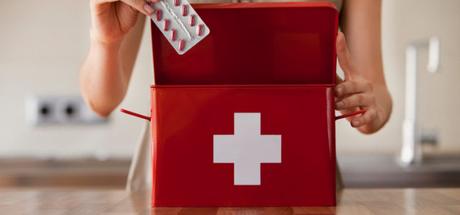
When packing for a trip, it can be easy to focus more on packing your clothes and shoes, which means toiletries and other essentials sometimes become an afterthought. You might be like me and end up throwing in that little bag without much thought beyond the items that you use on a regular basis, like your toothbrush or makeup.
Wherever you might be going on your next adventure, having a travel first aid kit can be invaluable. Even if you're heading to a major city or hiking through a forest, it can help to have some supplies in your bag to grab at a moment's notice.
Here are some tips on figuring out what you need and what you can leave at home.
Start with Some Basic Questions
While every traveler should take some sort of travel first aid kit, you might not need certain supplies on every trip.
Some basic questions you probably already ask your yourself when packing (and that can help when preparing a travel medical kit) are:
- Where are you going?
- What will you be doing on your trip?
- How long are you going for?
Considering these questions while you pack can help you make sure you have all the right supplies and enough for however long your trip is. It's also important to consider if you have any personal health needs-such as whether you might need medication or something like an inhaler.
Whether or not you have a medical condition, it's always good to talk to your doctor before traveling, especially if you're going somewhere more remote. Your doctor can also provide any paperwork you might need when traveling with certain medications, such as narcotics.
The Go-To Items
Wherever your next adventure will take you, it's important to at least pack a basic travel first aid kit. Whether I'm hopping in the car for a road trip or hiking in the Swiss Alps, I always make sure to have some basics with me for any little surprises along the way.
Some items that are must-haves in your kit:
- Any prescription medications you take
- An assortment of Band-Aids (for small cuts or scrapes)
- Pain medication or fever reducer (ibuprofen, acetaminophen, aspirin)
- Mole Skin or blister bandages (for blisters)
- Gauze
- Roll of medical tape
- Antibacterial wipes or solution (for cleaning cuts)
- Antacids (for when your stomach might be out of whack from traveling or food)
- Sunscreen
- Hand sanitizer
Making sure you have these essentials can save you time from having to hit the pharmacy while you're out and about and have supplies on hand for when you could really use it.
If you're worried about all the supplies taking up space in your carry on or suitcase, there are ways you keep everything compact and in one place. Consider in investing in a travel medical kit that often comes with many of these basics included and can be rolled up or flattened to fit in your bag.
For Special Trips
When packing, consider whether you're going somewhere remote or if you might face any special circumstances. Not every trip, and especially if you're visiting major cities or other residential locations, requires having to include extra items for situations you're probably not going to face.
If you're going somewhere with a warmer climate or somewhere you know bugs might be lurking, make sure to pack bug repellent. Take enough that you can reapply when needed for the duration of your trip. Talk to your doctor before leaving for countries where Zika, malaria or other dangerous diseases might be a risk. Ask them about any medications or information you should have when traveling in these places.
If you're off to somewhere more remote or where the water might be sketchy to drink, consider packing purification tablets or a water bottle with a built-in purifier. This can ensure that you have a way to get clean water when you need it.

